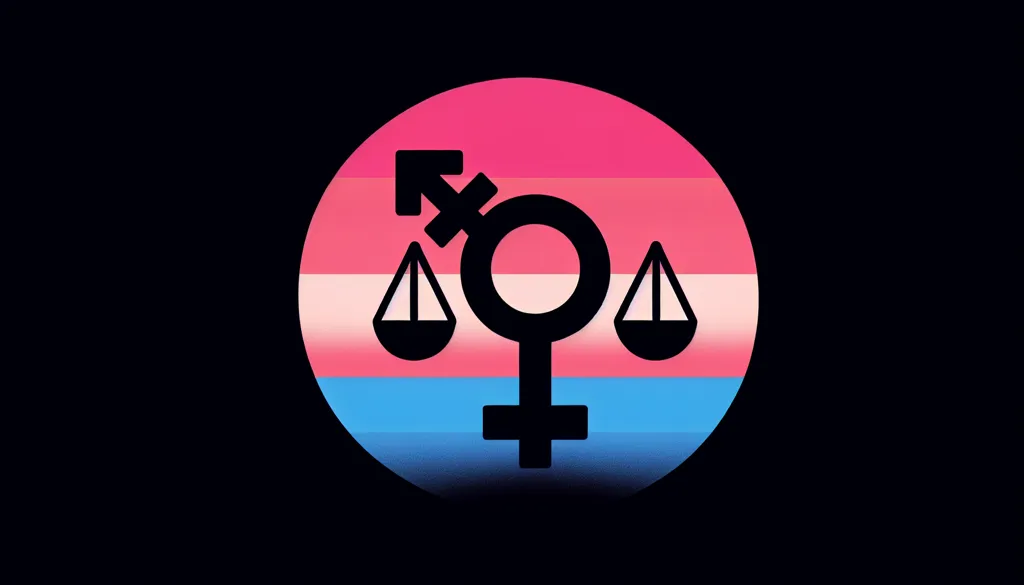The Supreme Court and Transgender Rights: A Crucial Turning Point
In a historic moment reflecting broader national debates, the Supreme Court recently heard arguments in a pivotal case concerning transgender rights. This case challenges a Tennessee law that bans gender-affirming care for minors, stirring conversations about constitutional rights and states' roles in regulating such care. As a mother, I often think about the implications of legal decisions on families, including my own, and the broader message they send to our children about acceptance and equality.
The Case at Hand
The Supreme Court is tasked with determining whether Tennessee's law violates the equal protection clause of the 14th Amendment, which mandates that individuals in similar situations be treated equally under the law. This clause has historically been a cornerstone for civil rights advancements, and its interpretation in this case could have far-reaching implications.
Both sides claim to protect minors from harm—Tennessee argues that the law safeguards young people from making irreversible medical decisions too early, while opponents, including families represented by Chase Strangio of the ACLU, assert that access to such care is essential and sometimes lifesaving, particularly for those with severe gender dysphoria.
Legal and Political Context
Across the United States, at least 26 states have enacted laws similar to Tennessee's, restricting or banning gender-affirming care for minors. These laws have sparked numerous lawsuits, indicating a deep national divide on the issue. The Supreme Court's decision could either reinforce or overturn these laws, influencing future legislation.
The case arrives amid a politically charged atmosphere, with President-elect Donald Trump having campaigned on rolling back transgender rights, contrasting sharply with the current administration's support for these protections. This political backdrop underscores the case's potential to influence future policy directions.
Insights from the Courtroom
The justices' questions revealed a spectrum of views. Chief Justice John Roberts and Justice Amy Coney Barrett, pivotal figures in the decision, showed skepticism toward arguments equating this case with previous LGBTQ+ rights cases. Justice Ketanji Brown Jackson, however, drew parallels to the landmark Loving v. Virginia case, emphasizing the importance of recognizing discriminatory classifications.
Justice Brett Kavanaugh raised concerns about the implications of a ruling for transgender athletes in girls' sports, highlighting the interconnectedness of legal decisions across different areas of public life. This complexity illustrates the multifaceted nature of the issues at play.
Personal Stories and Broader Implications
Amid legal arguments, personal stories bring a human element to the debate. Brian Williams from Nashville shared his family's experience, highlighting the challenges faced by transgender youth, like his daughter, who must travel out of state for necessary medical care. These narratives remind us of the real-life impacts of legislative decisions.
The case also raises questions about the role of medical organizations, with groups like the American Medical Association and American Academy of Pediatrics supporting gender-affirming care as critical for transgender youth. Their input suggests a consensus in the medical community that contradicts the restrictive legislative measures.
Potential Outcomes and Future Directions
The Supreme Court's decision, expected by early summer, will likely be one of the last of the term, underscoring its contentious nature. The court's ruling could either reaffirm or challenge the current legislative trend toward restricting transgender rights, potentially setting a precedent for future cases.
As a mother, I often think about the world my children will inherit. This case, at its core, is about the kind of society we want to build—one that embraces diversity and supports the needs of all individuals. Regardless of the outcome, it is crucial for us to continue advocating for the rights and dignity of every person, ensuring that acceptance and understanding are at the forefront of our communities.
Conclusion
The Supreme Court's deliberation on transgender rights is more than a legal battle; it is a reflection of our values as a nation. With families like the Williamses at the heart of the debate, the case highlights the need for empathy and open-mindedness in our public discourse. As we await the court's decision, it is essential to remember that each legal ruling is a step in shaping the future for generations to come. My hope is for a future where our children grow up in a world that respects and cherishes every individual's right to live authentically.

